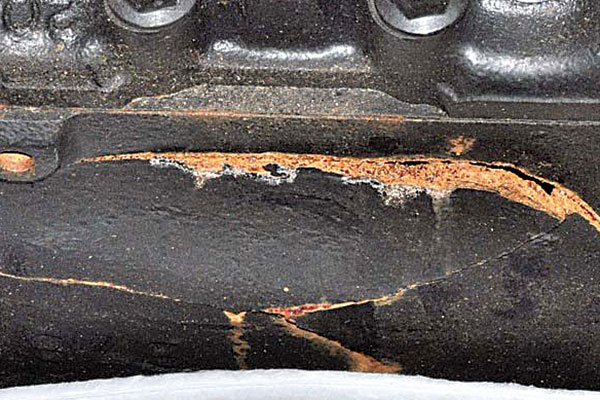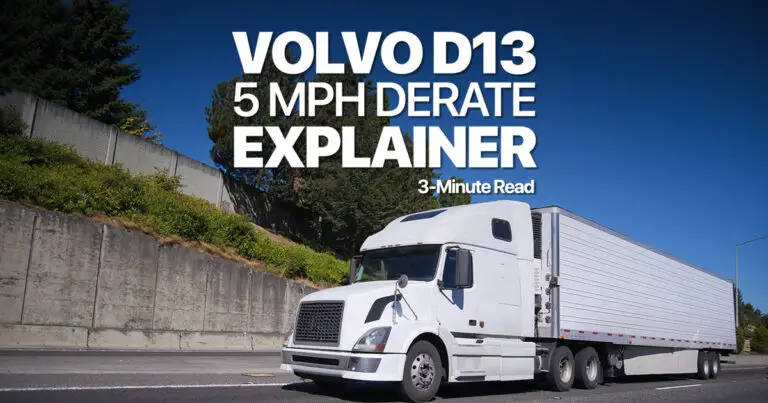
Frozen water can crack an engine block by expanding and causing damage to the metal. When water in the block freezes, it can lead to cracks in the cast iron or warping of the aluminum head, potentially causing leaks and engine failure.
Without proper antifreeze protection, the freezing temperatures can result in costly repairs and downtime for the vehicle. Understanding the risks of frozen water in the engine block is crucial for maintaining the longevity and performance of your vehicle. We will delve deeper into the effects of frozen water on engine blocks and how to prevent potential damage.
Navigate As You Want:
Can Frozen Water Crack An Engine Block
In freezing temperatures, water in the engine block can freeze and crack the cast iron block or warp the aluminum head, causing water leaks and potential damage. Engine overheating is a common cause of a cracked block, while freezing temperatures may also lead to cracks if the cooling system has excessive water and insufficient antifreeze. To unfreeze an engine block, move the car to a sheltered location and use a fan heater to accelerate the thawing process. However, avoid driving the vehicle until you are certain that the cooling system has completely thawed.
Credit: www.jalopyjournal.com
The Experiment: Can Frozen Water Crack An Engine Block?
Draining the old oil: Before starting an experiment involving frozen water and an engine block, ensure old oil is completely drained.
Filling the motor with water: Fill the engine with water to simulate the effects of freezing and observe any potential damages.
Potential oil leakage: Note possible areas where oil might leak due to the expansion of frozen water.
Effects on the rocker cover: Observe if any structural damages occur on the rocker cover due to frozen water expansion.
Escape of water: Monitor and record how and where the water escapes as it freezes in the engine block.
Starting the engine after freezing: Attempt to start the engine after freezing to evaluate any damage caused by the experiment.
Final thoughts: Reflect on the implications and results of the experiment involving frozen water and its impact on the engine block.
Understanding Cracked Engine Blocks
Frozen water can indeed crack an engine block due to the expansion that occurs when water freezes. This can happen if the engine is filled with water and not enough antifreeze to prevent freezing. Engine overheating and excessive thermal stress can also cause cracks in the block.
| Understanding Cracked Engine Blocks: |
| – The location of the crack in an engine block is crucial for determining repair options. |
| – Long term storage of engines can lead to issues like cracked blocks due to various factors. |
| – Draining the block before storage helps prevent freezing and cracking in engines. |
| – Core plugs, also known as freeze plugs, are important components related to engine block cracks. |
| – Repairing cracked engine blocks requires specialized techniques to ensure proper functionality. |
| – Common types of cracks include straight cracks that require specific repair methods. |
| – Identifying the most vulnerable areas of an engine block aids in preventive maintenance. |

Credit: www.youtube.com
How To Repair A Cracked Engine Block
Frozen water can cause significant damage to an engine block. When water in the radiator freezes, it can burst the passageways, leading to water leaks when the car is started. In colder weather, the water inside the engine block can also freeze, resulting in cracks in the cast iron block or warping of the aluminum head. Engine overheating and inadequate antifreeze in the cooling system are common causes of a cracked block. To repair a cracked engine block, begin by thoroughly cleaning the block. Then, apply reinforcement tape, followed by priming the block and applying reinforcement compound. Finally, apply the second layer to complete the repair process. It’s crucial to properly address any cracks in the engine block to ensure the overall functionality of the engine.
Preventing And Dealing With Cracked Engine Blocks
Effects of freezing water in the engine block: When water freezes in the engine block, it can cause severe damage. Without antifreeze, the water in the radiator will freeze and potentially burst the passageways, leading to water leaks when the car is started. In extremely cold weather, the water in the engine block can also freeze, causing cracks in the cast iron block or warping the aluminum head.
Appropriate antifreeze usage: To prevent frozen water in the engine block, it is essential to use the appropriate antifreeze. Antifreeze helps lower the freezing point of the coolant, preventing water from freezing and causing damage. It is important to ensure the cooling system is filled with the correct ratio of antifreeze to water, as too much water and not enough antifreeze can lead to a cracked block.
Signs and symptoms of a cracked block: If your engine block is cracked, you may notice various signs and symptoms. These can include coolant leaks, overheating, white smoke from the exhaust, milky or foamy oil, and engine misfire. It is crucial to address these issues promptly to prevent further damage.
Unfreezing an engine block: If your engine block is frozen, you can thaw it by moving the car to a sheltered location like a garage and using a fan heater to speed up the thawing process. However, it is crucial to ensure the cooling system has properly thawed before driving the vehicle.
Repairing or replacing a cracked block: In the event of a cracked engine block, repairing or replacing it may be necessary. The repair process can involve cleaning the block, applying reinforcement tape and primer, and applying a reinforcement compound. However, depending on the extent of the damage, replacing the entire block may be a more viable solution.

Credit: www.boatus.com
Frequently Asked Questions Of Can Frozen Water Crack An Engine Block
What Happens If Water Freezes In Engine Block?
Frozen water in the engine block can expand and crack the block or warp the head, causing leaks and damage. Without antifreeze, the radiator can also burst, leading to water leaks when the car is started. It’s important to use antifreeze to prevent freezing and damage.
What Temperature Will Water Crack An Engine Block?
Water can crack an engine block when it freezes, typically below 32°F, causing expansion that leads to cracks.
What Would Cause A Cracked Engine Block?
An engine block can crack due to engine overheating, causing thermal stress or freezing temperatures with inadequate antifreeze.
How Do You Unfreeze An Engine Block?
To unfreeze an engine block, move the car to a sheltered location like a garage. Use a fan heater to speed up thawing, ensuring the cooling system is fully thawed before driving. Avoid water in the engine block freezing and causing cracks by maintaining a proper antifreeze balance.
Conclusion
It’s evident that frozen water can indeed crack an engine block with potentially damaging consequences. Whether due to freezing temperatures or insufficient antifreeze, the risk of engine block cracking remains a serious concern. Understanding these risks and taking appropriate precautions is crucial for maintaining the longevity and performance of your vehicle’s engine.



